By any measure, the growth and popularity of Twitter has been phenomenal. To say that Twitter has hit mainstream isn't really the right metric to use. It's more powerful to note that for a large group of Twitter enthusiasts, to spend even a day without using it would be as bad (or perhaps even worse) than not having email. It has become just that necessary. How did the site get to this point? And what are the lessons that any entrepreneur might be able to learn from how it got there? Here are a few thoughts on the real secrets behind Twitter's success:
- Focus on real time. For the socially connected online, there is little use for yet another place to talk to your friends. If anything, we all have too many of those to start with. But a site dedicated to RIGHT NOW stands out. It's useful in a way that none of the other sites we use are.
- Skip the extra step. Approving every friend request can be a lot of work – even if you're not the most popular of people. It does make sense on most social networks, but when it comes to posting updates on Twitter, if you do it publicly, anyone can follow you without approval. The result is that any user's audience on Twitter can grow exponentially without barriers.
- Force your customers to do less. If you have ever heard the saying that "less is more" – Twitter is the ultimate proof of that. The forced 140 character messages have made us all refocus on brevity, and as a result of this volume decrease, those of us that are constantly overcommunicated look to the site as the one place where we can still feel that we are on top of the flood of communication that rules our lives.
- Build enough evangelists to compensate when things go wrong. One of the most well known facts about Twitter is that the service has been notoriously unreliable and crashed frequently. Though it is much improved from those days, the site still goes down or loses functionality relatively regularly. Yet it has managed to build up enough power users and evangelists, that people forgive their down times and keep coming back.
- Integrate with the most popular competition. The single most useful feature I personally uncovered from Twitter was the ability to integrate it into my Facebook page so that may Twitter updates also become my status on Facebook. This demonstrates a fact that many entrepreneurs already know – by integrating with your competition where your "customers" currently are, you make it easier for them to migrate over to your site.
- Launch where your influencers are. A big reason for the early success of Twitter was their launch at the SXSW Interactive festival two years ago. It was a place where all the influencers that matters for Twitter were already going to be and putting the site in front of them there allowed them to become word of mouth ambassadors for the site following the event.
- Offer a public ranking or authority. The final element that has helped Twitter to succeed is that it has a built in authority ranking with the number of followers you have. This is located right beneath your username on the site and it's high visibility means that it is easily the ultimate metric for anyone using the site. And you can't help but want that number to go higher.
If you enjoyed this post, check out my other posts about microblogging and follow me on Twitter at @rohitbhargava.


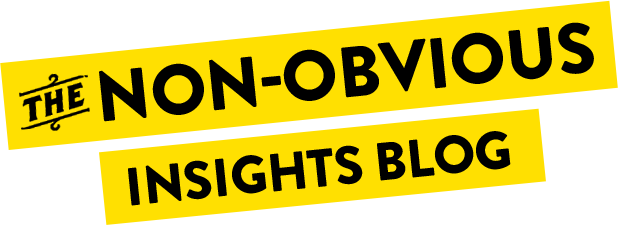






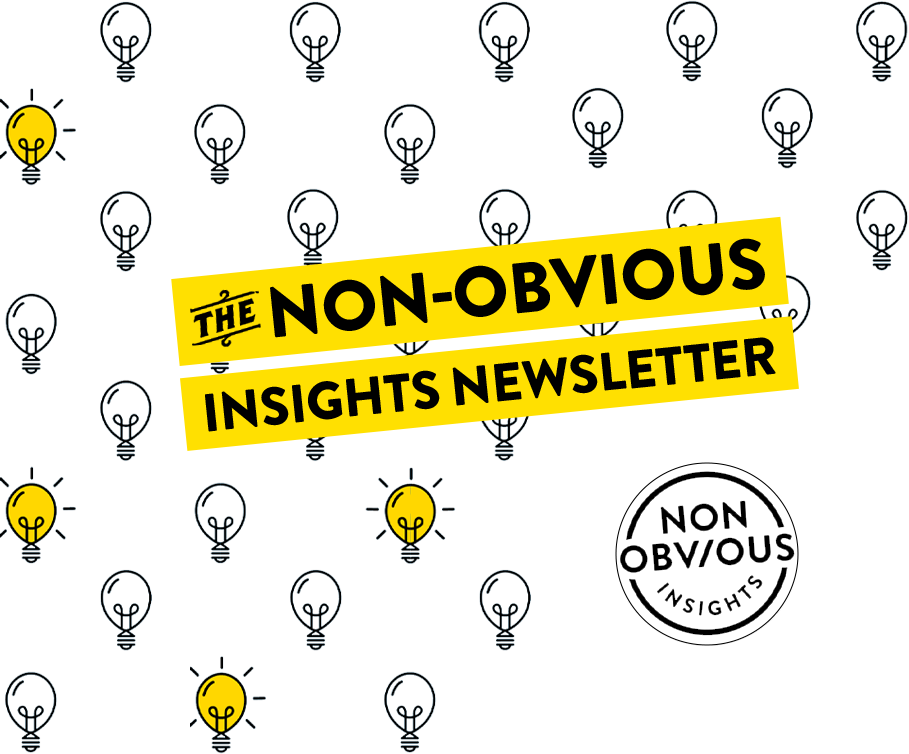




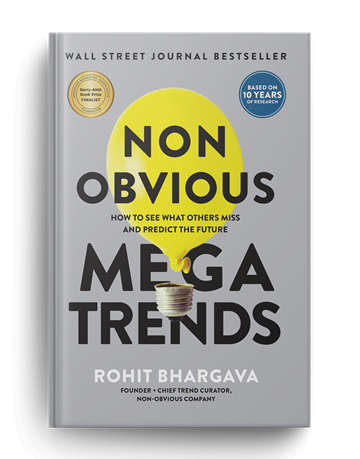
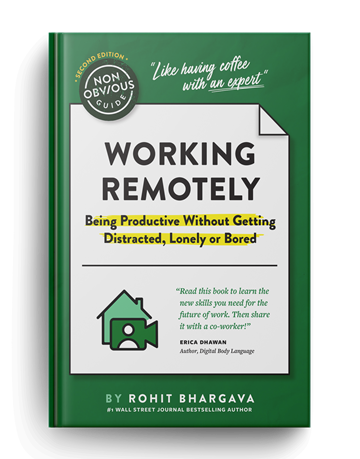


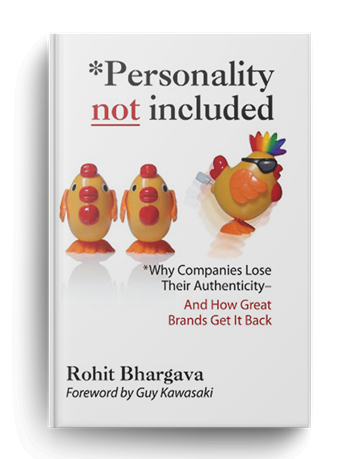



Rohit – great tips. Thank you for sharing. My fav – Focus on real time.
– M
As I work on my office’s strategy #3 particularly remains a large focus. Make it so students click less, have to take less steps to find information, etc.
Rohit, awesome advice and timeless principles. Sound principles shine through in every success.
Regarding #5, why would any business send its tweets to Facebook? It’s one thing if the tweet is a broadcast message with a link, but if replying to someone, e.g. a customer, where’s the value when the Facebook user wouldn’t understand the context?
I’d rather see a business have a Facebook page and suck in Twitter messages through RSS.
Use Facebook for Facebook. Use Twitter for Twitter. And suck everything to one place, e.g. the corporate website.
Great post. #5 is my favorite (I’ve blogged about the difference in proliferation – aggregation – integration). The most important thing I learned from Twitter is to create open platforms and let others build your ‘products’ and buy the ones that fit the best for long term growth. Also helps with PR and customer acquisition. Twitter on!
Great article, helped me to get a more in depth look why Twitter is so successful. Might be useful in my thesis too.
But I was also wondering about point 5. and what Ari Herzog was saying. I just read this article https://www.socialmediatoday.com/SMC/73307 yesterday and point 9. in that article also recommends not using Twitter with Facebook. What’s your opinion on this ?
I think Ari Herzog’s response to point 5 highlights the power of being open to customers and competitors utilizing your platform the way they want, instead of being limited to how you envision. If it works for you on facebook great, if not great – your choice. Since the way you use twitter influences your ‘power’ (point 7) everybody learns quickly what builds or destroys ranking. Tweet inappropriately (based on your followers belief system) and loose followers.
Interesting that several people felt strongly about point number 5 from this post. @Ari – Not sure that I agree that there couldn’t be a business use for pulling a Twitter feed into Facebook … many brands are pulling the feed into their media pages on a website, or into a sidebar on a blog. If their Facebook presence is set up with a similar strategy, I think this could work.
The point of keeping Twitter audiences separate from Facebook audiences makes total sense if you are reaching different people through those two tools. What I have found is that generally when I Twitter something, I would want my Facebook friends to see it as well. And the ones that I would not want them to see where I am sending @ messages directly to someone on Twitter aren’t pulled into Facebook anyway … so there’s no conflict there.
Either way, I’m a longtime believer that the more you can integrate with existing sites using technologies like open APIs, the more easily you can get people to adopt a new service. The only reason I was able to start using a relatively new site like Dopplr and get use out of it was because I was able to connect with my friends through an integrated search of my gmail and Facebook. Ultimately I still controlled who I chose to connect with on Dopplr, but that integration made the difference for me on finding that site useful.
Twitter is definitely a great social networking site and in terms of the growth. Apart from people using it daily, we hear about it every day in conferences, seminars, webinars, podcasts and even live TV!
I also think that apart from the marketing tips that you have listed above (which rocks!), Twitter also scored big in terms of letting developers utilize its API in creating tons of apps that are built around the social networking platform.
Wayne Liew
https://www.wayneliew.com
Rohit,
Your point # 5 perfectly illustrates that in business it is important to co-exist. There is enough food for everyone and that theory can work wonders most of the time.
# 6 is a marketing strategy that is a product of the web. Google did the same, Skype too, and now Twitter. This again tells us that now we have two classes of marketers: the mass marketers and the influence marketers.
Nice post! Thanks, Bob.
Rohit,
You are speaking my language! i am promoting social networking and especially twitter for small businesses in san diego in a MAJOR way! please help the movement any way you can with your passions-The Twitter Pay It Forward Movement
for more details
http://www.divinesaints.com
I felt the same way about my cable company last year, and I ditched them at the first rate increase to watch TV online. I’d say cable companies already have a lot to worry about. Now, I don’t get charged for TV at all. #1 is a great point. I use a business IM (link above) to communicate with my clients, and they really seem to love the real time feedback it can provide them. I have been able to keep clients loyal this way.
There is nothing like automatic feedback. For the competitive types to see your numbers rise, they just keep coming back for more.
Great post, Rohit! Point #4 speaks the loudest to me. It’s imperative for brands to go the extra mile to build a deeper relationship with their evangelists. It’s great to use social mediums like Twitter, but don’t forget to mix in some traditional ones like town hall meetings, beta testing and customer support with extra TLC. Treat evangelists like the rock stars they are! Rock on, Rohit!
Rohit-
Great observations. My caveat is that these aren’t just tips for Entrepreneurs, but for any company or product manager. Making customers reconsider limits and building up a resevoir of good will are, in particular, great for any size – and any stage – business.
Great tips Rohit. I was “guilty” of doing #5, but got chastised by some Facebookers who were upset with the frequency of status updates coming from me. So, I shut off the tap. The downside, now I have to remember to update my FB status in real time.
One correction if I may. Didn’t Twitter launch at SXSW in 2006?
This was well thought out, thanks for this info.
This is Such a Good informative Post.
Great insights. I have been blogging about grant writing at Grant Writing Confidential (https://blog.seliger.com) with a colleague for about 18 months. Recently, we’ve been debating about the merits of twitter. You’ve convinced one entrepreneur to tweet. I written lots of posts about the Stimulus Bill, and, if I had been tweeting, I probably would have attracted quite a flock. Now, if I could just learn to use the virtual keyboard on my iPhone, I would be off to the races.